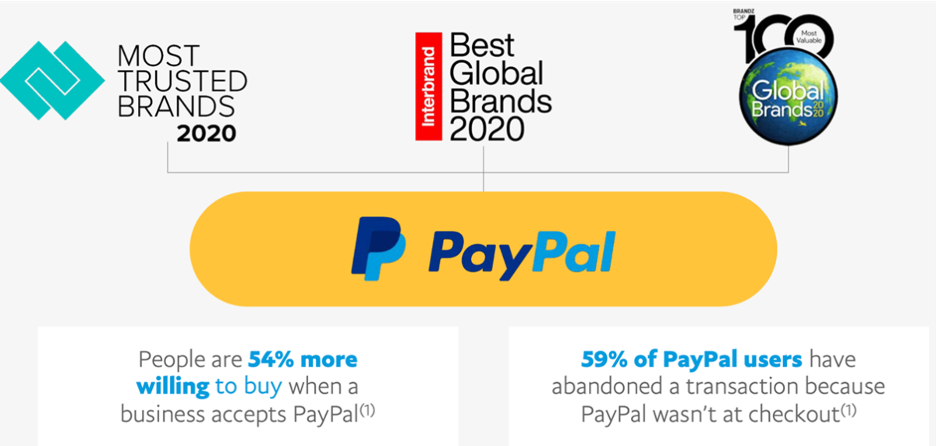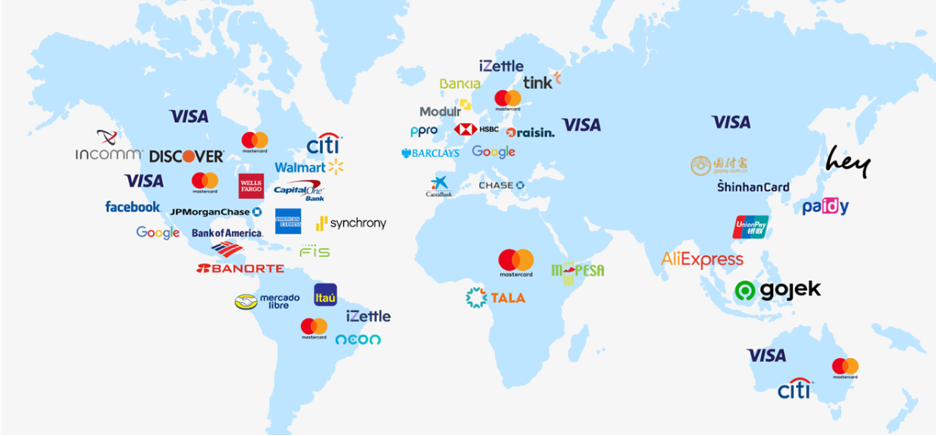PayPal Holdings Inc PYPL is a global online platform that serves both consumers (PayPal and Venmo) and merchants (Braintree and iZettle), commanding a powerful network effect. PayPal's 348 million consumers attract more merchants, while 29 million merchants add better service for consumers. PayPal is one of the biggest beneficiaries of the structural shift toward online and contactless payments brought on by the pandemic, adding 72 million new accounts and growing its total payment volume (TPV) by 36% in 2020.
Compared to fintech unicorns that emerged in the last decade, such as Square Inc SQ and Stripe, Paypal has been slower in rolling out new functions. Some investors may wonder how PayPal could attract millions of consumers and successfully roll out new fintech products simultaneously. We believe PayPal has done two things right in the past that helped build the groundwork for its current success:
State-of-the-art security. PayPal has invested heavily in new risk management technologies such as AI monitoring and network tokenization. The advanced security has earned PayPal invaluable customer trust. During the investor day, Paypal management revealed that its risk management team has over 4000 members that monitor 500 petabytes of transaction data. PayPal has 400 million tokenized cards within payment vaults, which expects to reach 750 million by 2021. The robust security helps PayPal improve its authorization rates by 400 bps from 2018 to 2020, enabling merchants to grow revenue and customer satisfaction.

- Global Partnership. Since the spin-off from eBay Inc EBAY in 2015, PayPal has decided to partner with card networks rather than compete. The huge Visa Inc V / Mastercard MA deals PayPal struck in 2016 have significantly helped PayPal with its consumer adoption. In addition to collaborating with card networks, Paypal has forged hundreds of partnerships worldwide, such as Union Pay in China, MercadoLibre in South America, and Gojek in Southeast Asia.

While security and partnership might sound strategically straightforward, it is very complex to execute. PayPal, fortunately, did well on both ends. Armed with millions of new consumers, PayPal is embracing its most exciting journey of growth. The company is expanding aggressively into three large markets: a) install payment, b) QR code, and c) cryptocurrency. By partnering with financial institutions, PaPal also plans to incorporate direct deposit, high-yield saving, and stock trading, turning into a fintech super-app for real.
During the investor day, the management said the ultimate goal of rolling out new functions is for better customer engagement. More engagement means more monetization. Recent statistics have shown that customers adopting "install payment" have also increased TPV by 12%; customers choosing "QR code" have increased TPV by 19%; customers embracing "crypto" have a staggering 2X engagement. The encouraging result has led Paypal to raise its 2025 revenue target to $50 billion, a CAGR of 20% from 2020, an impressive growth rate given its large scale. PayPal seems winning in the fintech war.
Benzinga's Related Links:
Edge Rankings
Price Trend
© 2025 Benzinga.com. Benzinga does not provide investment advice. All rights reserved.
Trade confidently with insights and alerts from analyst ratings, free reports and breaking news that affects the stocks you care about.